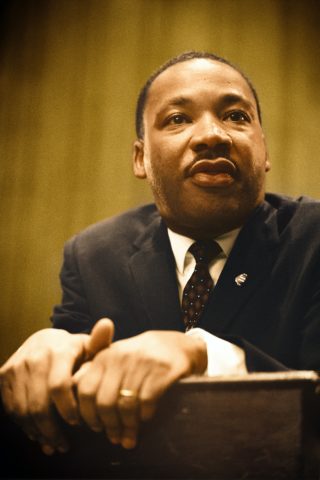Today, for another few hours is Martin Luther King’s birthday.
I’ve been busy at the Hamline University Low Residency MFA program’s winter residency. Today’s the last day, so suitcase packing might be a good idea, but I could not let this date pass without some acknowledgment of the birthday of a great American.
And fortunately for me, at this residency I met Ann Bausum, writer of wonderful non-fiction for children and young adults. Ann read to us from her new book, Marching to the Mountaintop, the story of Martin Luther King, Junior’s last days in Memphis in 1968, released just last week.
In this book, Ann tells us the story of the Memphis sanitation workers’ strike, when these city workers could not take any more mistreatment and marched in the streets with signs that read “I am a man.”
She also reminds us of the lasting impact of King’s campaign for civil rights using non-violence as the strategy. Here’s a bit of the flap copy:
“I’ve been to the mountaintop . . . And I’ve looked over. And I’ve seen the promised land. I may not get there with you. But I want you to know tonight, that we, as a people, will get to the promised land!”
“On Wednesday, April 3, 1968, Martin Luther King, Jr., delivered one of the most stirring speeches of his career. His vision of the promised land and his confidence that it could be reached was for his audience the essence of what it would mean for a dream to come alive. They were the sanitation workers of Memphis, Tennessee, a group of poor African-American men who had spent their lives being treated like garbage. The men were completing week eight of a strike to improve working conditions—eight brutal weeks of being stonewalled after a lifetime of being ignored. King galvanized them and gave them hope. But not 24 hours later, he was dead, killed by an assassin’s bullet.”
And here’s a brief quote from the book:
Freedom is not something that is voluntarily given by the oppressor,’ Martin Luther King said in Memphis, yet he proved over and over again that it could be achieved by non-violent means. His rich understanding of that truth arose from his relentless, uphill campaign for social justice. … King’s faith in non-violence echoes through events that have unfolded around the globe in the decades since his death. Even at the dismantling of the Berllin Wall in Germany people sang ‘We Shall Overcome.
We heard echoes of Dr. King’s influence again last winter in Egypt’s Tahrir Square as protesters were careful to keep their movement non-violent.
Some people make history. Some people change lives around the world.
It feels good to remember.


